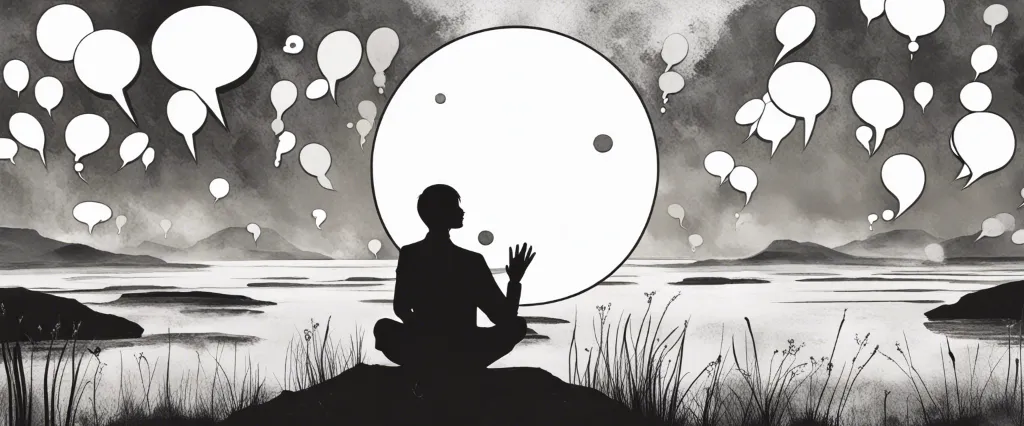“The Courage to be Disliked” is a self-help book co-authored by Ichiro Kishimi and Fumitake Koga. It presents a dialogue between a philosopher and a young man, exploring the principles of Alfred Adler’s individual psychology and its application to achieve personal happiness and fulfillment.
The book presents a radical approach towards a happier life by challenging commonly held beliefs and societal expectations. It emphasizes that individuals have the power to change their perspective and take control of their own lives, rather than being victims of circumstances or relying on the approval of others. It rejects the notion that one’s past, external factors, or the behaviors of others determine their happiness.
The dialogue examines key concepts like life tasks, self-acceptance, social interest, and the separation of tasks between oneself and others. It argues that pursuing one’s individual goals and aspirations, rather than comparing oneself to others or seeking validation, is essential for personal growth and contentment.
Throughout the book, the philosopher challenges the young man’s preconceptions about themselves, their relationships, and their place in society. Through this process, the reader is encouraged to question their own beliefs and ideas, ultimately empowering them to find the courage to be disliked by others if it means living an authentic life.
“The Courage to be Disliked” advocates for a philosophy of independence and freedom from the constraints of societal expectations. It invites readers to embrace their uniqueness and find their own path towards a meaningful and satisfying life, irrespective of external judgments or criticisms.
“The Subtle Art of Not Giving a F*ck” by Mark Manson is a self-help book that challenges popular notions of happiness and success. The book argues that happiness is not the result of pursuing a problem-free life or constant positivity, but rather by accepting life’s inevitable struggles and choosing which problems to care about.
Manson believes that people often waste their energy and happiness by obsessing over trivial matters and seeking external validation. He encourages readers to identify their core values and prioritize their limited amount of “f*cks” based on what truly matters to them. The author emphasizes the importance of taking responsibility for one’s own life, accepting the harsh truths of reality, and embracing the inherent uncertainties.
Throughout the book, Manson shares personal anecdotes, philosophical insights, and humorous stories to illustrate his points. He highlights the common pitfalls of seeking constant happiness and avoiding discomfort or failure. Manson argues that embracing failures and learning from them can lead to personal growth and a more fulfilling life.
Ultimately, “The Subtle Art of Not Giving a F*ck” offers a counterintuitive approach to self-improvement, urging readers to let go of societal expectations, focus on what truly matters, and develop a more resilient mindset. By letting go of the need for constant positivity and learning to choose their battles wisely, readers can find authentic happiness and fulfillment.
Comparison between Two Books
Although The Courage to be Disliked by Ichiro Kishimi and The Subtle Art of Not Giving a F*ck by Mark Manson approach personal growth and happiness from different angles, both books surprisingly touch upon the importance of positive thinking. Here are some of the key similarities regarding positive thinking found in both books:
1. Challenging social constructs: Both books encourage readers to challenge existing societal norms and expectations, which often dictate the need for positive thinking at all times. They argue that the pressure to always think positively can be counterproductive and even harmful, as it disregards the importance of acknowledging negative emotions and experiences. By liberating oneself from such societal constraints, readers are encouraged to approach positive thinking more authentically.
2. Acceptance of negative emotions: Both authors emphasize the need to accept and embrace negative emotions as a natural part of life. They argue that suppressing or denying negative emotions may hinder personal growth and happiness. By acknowledging and accepting these emotions, individuals can gain a clearer perspective on their lives and cultivate a more genuine positive outlook.
3. Focus on personal responsibility: Both books stress the importance of taking personal responsibility for one’s own happiness. They assert that positive thinking should primarily stem from within, rather than relying on external factors or circumstances to dictate one’s emotional state. Both Kishimi and Manson emphasize that individuals have the power to choose how they interpret and respond to events in their lives, regardless of how challenging or negative they may seem.
4. Shifting focus from outcome to process: Both authors argue that positive thinking should revolve around the process rather than solely focusing on desired outcomes. Kishimi highlights the significance of living in the present moment, expressing gratitude for the journey, and finding joy in the process itself. Similarly, Manson suggests that individuals should shift their focus from pursuing external achievements towards finding fulfillment in the actions they take to pursue their goals.
5. Embracing uncertainty: Both books promote a mindset that embraces uncertainty rather than seeking constant reassurance or control. They argue that positive thinking involves accepting the unpredictable nature of life and finding comfort within it. Both Kishimi and Manson believe that by embracing uncertainty, individuals can develop a more resilient and adaptable positive outlook on life.
Overall, while The Courage to be Disliked and The Subtle Art of Not Giving a F*ck take distinct approaches, they converge on the idea that authentic positive thinking involves embracing all facets of life, including both positive and negative emotions, personal responsibility, and the acceptance of uncertainty.
The Courage to be Disliked by Ichiro Kishimi and The Subtle Art of Not Giving a F*ck by Mark Manson share the common goal of guiding readers towards a happier and more fulfilling life. However, when it comes to the concept of positive thinking, there is a notable divergence between these two books.
In The Courage to be Disliked, Kishimi and his co-author Fumitake Koga argue against the traditional emphasis on positive thinking. They criticize the notion that one must always maintain a positive mindset in order to achieve happiness. According to the authors, positive thinking often leads to emotional dependency, as it relies on external circumstances aligning with one’s desires. Kishimi believes that it is unhealthy to base one’s happiness on others’ approval or positive external outcomes.
On the other hand, The Subtle Art of Not Giving a F*ck takes a slightly different stance on positive thinking. Manson suggests that positive thinking can sometimes create unrealistic expectations and a false sense of entitlement. He argues that constantly striving for positivity can be detrimental as it ignores the realities of life, which includes pain and suffering. Manson advocates for a more balanced approach, where individuals accept their negative emotions instead of forcefully trying to push them away. Rather than focusing on maintaining a positive attitude at all times, Manson encourages readers to accept their flaws and pursue a life based on personal values.
In summary, while both The Courage to be Disliked and The Subtle Art of Not Giving a F*ck criticize the traditional view of positive thinking, they offer slightly different perspectives. Kishimi suggests that positive thinking often leads to emotional dependency, while Manson highlights the dangers of unrealistic expectations. Both authors emphasize the importance of accepting negative emotions and finding a more balanced approach to life. Ultimately, they aim to guide readers towards a more authentic and fulfilling existence that is not entirely dependent on forcing oneself to think positively.




